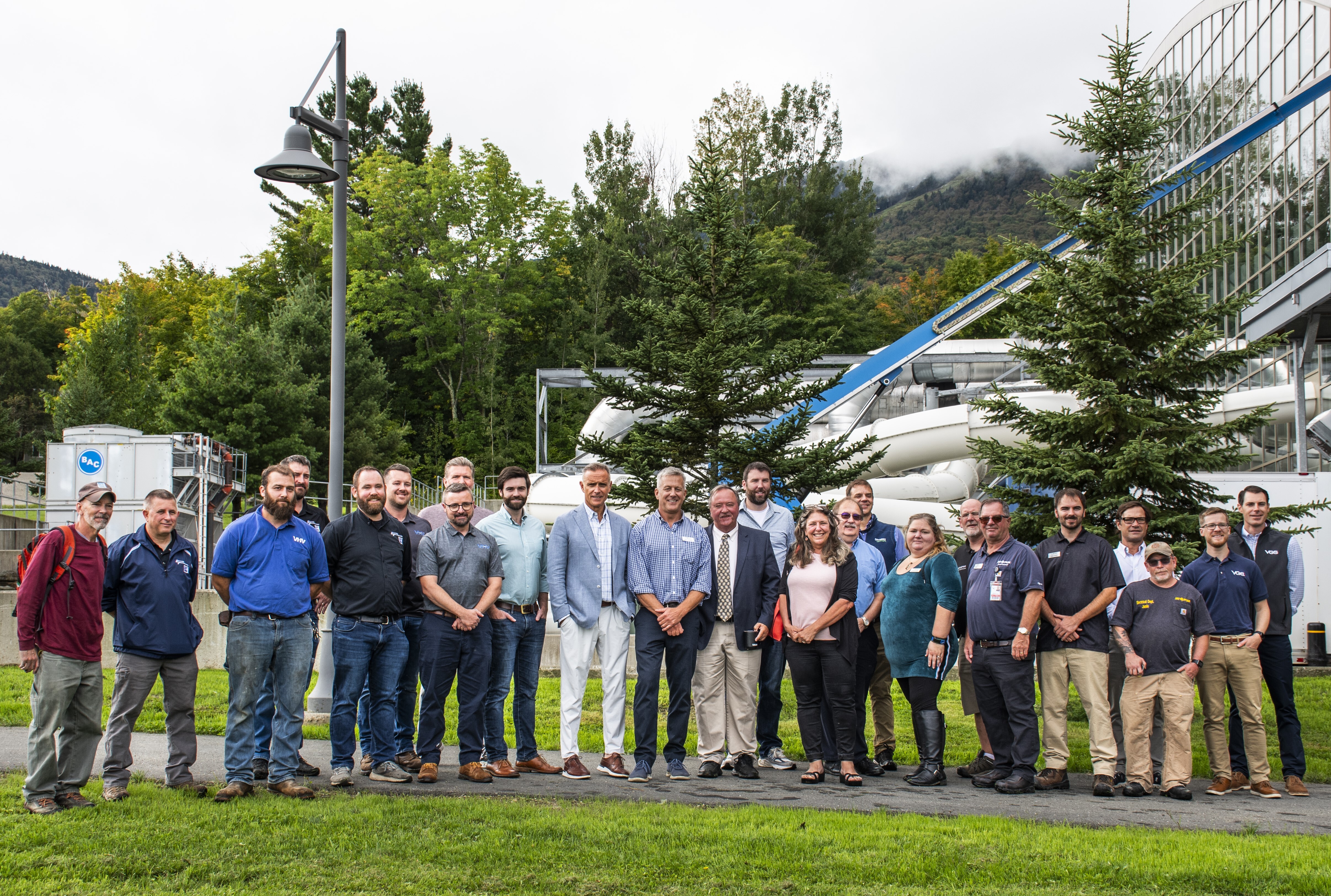Jay Peak Heating Project Brings Big Benefits to the Region

Jay Peak Resort has been running an innovative, hybrid space-and-water heating system for a few months now and initial indications are that the effort is helping the resort save significant energy costs and reduce carbon emissions. (Above, representatives from Jay Peak Resort, VEC and others gathered in September to mark the start of the new thermal boiler project at the resort. Photo courtesy Jay Peak Resort.)
The new system can toggle back and forth between fuels, either propane or electricity, based on a variety of metrics, at any given time. “The resort is very pleased with the first month of electric boiler operation,” said Andy Stenger, Director of Facilities and Resort Services at Jay.
“So far we’ve lowered our propane consumption by 37,000 gallons and reduced our carbon emissions by 175 tons,” he said. “We are very excited to see what the next few months of operations will yield.”
The system’s software “picks and chooses when it’s most efficient to run either propane or electricity,” said Dave Lahar, VEC’s Key Accounts Manager. He noted that consuming electricity selectively in response to certain signals enables the boiler to receive significantly cheaper and cleaner electricity while improving the efficiency of the local grid. “Initial indications are very promising that the system is working as intended, based on the early data we’ve seen,” Lahar said.
Jay Peak Resort – which is one of VEC’s largest commercial members – is expected to reduce propane consumption from the Tramside area, including the Hotel Jay and the Pumphouse waterpark, by 60 percent, or 450,000 gallons per year. The resulting 2,500-ton annual reduction in CO2 emissions is substantial and will make a meaningful contribution to Vermont’s and VEC’s carbon reduction goals.
The system also leverages the value of the electric grid. For instance, the new electrical load will mitigate some of the current electric system congestion problems in the constrained Sheffield Highgate Export Interface (SHEI) area. In the SHEI there are times when there is too much generation and not enough demand. This causes some renewable resources, such as Kingdom Community Wind, to be curtailed. “We’re really excited about the wide range of benefits this project brings to the region,” said Lahar. “We expect to learn a lot – and perhaps, if it continues to prove a successful model, it can be replicated in other parts of our service territory.”